Justice Environmental
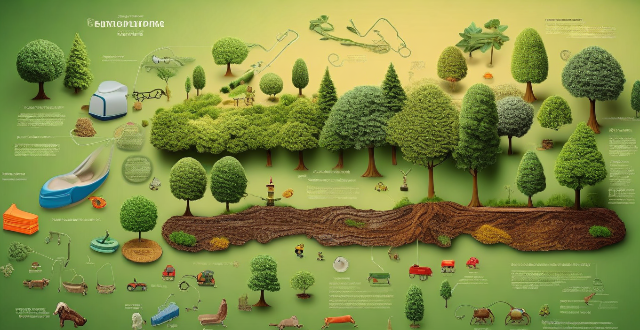
How does climate justice relate to environmental racism ?
This text discusses the interconnected reality of climate justice and environmental racism. It defines both terms, outlines their intersection in terms of historical and structural inequities, disproportionate impacts, mitigation and adaptation inequities, and exclusion from decision-making processes. It then proposes solutions to address this intersection, including promoting participatory democracy, equitable allocation of resources, enforcing environmental justice legislation, and building resilience through education and capacity building. Overall, it emphasizes the need for a more equitable approach to environmental protection and climate action that recognizes and challenges the root causes and impacts of environmental racism within the broader context of climate justice.

How can we achieve climate justice in a world with increasing inequality ?
Achieving climate justice in a world with increasing inequality requires strengthening international cooperation, advocating for environmental justice, investing in renewable energy, implementing circular economy principles, establishing legal frameworks, promoting education and awareness, supporting sustainable agriculture, and fostering urban sustainability. These strategies aim to ensure that all people have equal access to resources and protections from climate change, regardless of their socioeconomic status, race, or geographic location.

How does climate change legislation address the concerns of environmental justice and equity ?
Climate change legislation should address environmental justice and equity by prioritizing vulnerable communities, promoting participatory decision-making, ensuring access to clean energy and sustainable practices, and addressing environmental health disparities. This will create more equitable and effective climate policies for all communities.

What is the relationship between climate change and environmental racism, and how can we address this issue through climate justice ?
Climate change and environmental racism are interconnected issues that disproportionately affect marginalized communities. The relationship between the two is multifaceted, involving displacement, health impacts, economic disparities, infrastructure vulnerabilities, and limited access to information and resources. To address these issues, pursuing climate justice is crucial, which involves ensuring equal representation in climate policy decisions and equitable distribution of benefits and burdens associated with climate action. Key strategies for achieving climate justice include community engagement, equitable resource allocation, health protection measures, economic opportunities, infrastructure resilience, access to information, legal protections, and global cooperation.

What is the impact of climate and environmental policies on social justice and equity ?
Climate and environmental policies can have significant implications for social justice and equity. These policies aim to reduce greenhouse gas emissions, protect natural resources, and promote sustainable development. However, their implementation can impose disproportionate burdens on low-income communities and marginalized groups, create unequal access to benefits, and fail to recognize the unique vulnerabilities faced by certain groups. To maximize their positive impacts and minimize potential harms, these policies must take into account distributional effects, procedural fairness, and recognition of vulnerable groups. By doing so, we can create more just and equitable societies that are resilient to the challenges posed by climate change and environmental degradation.

Can you provide examples of climate justice in action ?
Climate justice is a concept that recognizes the disproportionate impacts of climate change on vulnerable populations and communities. It emphasizes the need for equitable solutions that address both the causes and consequences of climate change, ensuring that those most affected by environmental harm have a voice in decision-making processes. Examples of climate justice in action include renewable energy adoption, green infrastructure and natural solutions, climate education and awareness, and climate policy and advocacy. These initiatives aim to mitigate the effects of climate change while building a more equitable society that can thrive amidst changing environmental conditions.
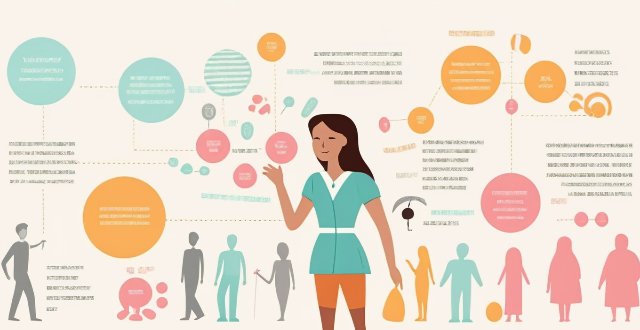
What is climate justice and why is it important ?
Climate justice is a concept that aims to ensure fair treatment for all individuals, communities, and countries in the face of climate change. It involves the equitable distribution of benefits and burdens associated with both climate change mitigation efforts and adaptation strategies. Key aspects of climate justice include equity, recognition, and procedural fairness. Climate justice is important because it helps mitigate unequal impacts, promotes sustainable development, enhances participation and accountability, and fosters global cooperation. In conclusion, climate justice is not merely a moral imperative but also a practical necessity for crafting effective and enduring solutions to the challenges posed by climate change.

What are the key principles of climate justice ?
The text discusses the key principles of climate justice, which emphasizes fair and equitable solutions to climate change. The principles include: 1. **Recognition of Vulnerability** - Acknowledging that some communities are more susceptible to climate change's effects and prioritizing their needs in adaptation measures. 2. **Responsibility and Accountability** - Recognizing developed countries' disproportionate contribution to emissions and advocating for differentiated responsibilities in addressing climate change. 3. **Participation and Access to Decision-Making** - Ensuring all affected communities, including marginalized groups, have a say in climate policy decisions and promoting transparency. 4. **Protection of Human Rights** - Upholding rights to health, water, and food security, which are often threatened by climate change impacts. 5. **Intergenerational Equity** - Considering the rights and needs of future generations and advocating for sustainable development pathways. Overall, climate justice focuses on equity, human rights, and ethical treatment of people, especially those most affected by climate change.

Can you explain the concept of intergenerational climate justice ?
Intergenerational climate justice is a concept that deals with the ethical implications of climate change on future generations. It emphasizes the responsibility of the current generation to take actions that will not harm the well-being and quality of life of future generations. The concept is rooted in the idea that every generation has a duty to preserve the planet for those who will come after them. The key elements of intergenerational climate justice include ethical responsibility, sustainable development, intergenerational equity, and climate change mitigation and adaptation. These components are necessary to ensure the well-being of future generations and promote social justice by addressing the disproportionate impact of climate change on vulnerable populations. The importance of intergenerational climate justice cannot be overstated as it recognizes that climate change is a global issue that affects everyone, regardless of age or location. By taking action now, we can help ensure a better future for our children and grandchildren.

How does climate ethics relate to the concept of intergenerational justice ?
Climate ethics and intergenerational justice are important concepts that guide us in making decisions that promote a more equitable and sustainable future for all generations. Intergenerational equity, the precautionary principle, and sustainable development are key principles that should be considered when making decisions about resource use and emissions reductions. Governments, businesses, and individuals can all play a role in promoting climate ethics and intergenerational justice by adopting sustainable practices and supporting policies that prioritize climate action.

What role does climate justice play in addressing the impacts of climate change on vulnerable communities ?
Climate justice is crucial for addressing the disproportionate impacts of climate change on vulnerable communities. It emphasizes equity, fairness, sustainability, participation, and transparency in environmental policies and practices. Vulnerable communities face unique challenges due to limited resources and dependence on natural resources. Key principles of climate justice include equity, fairness, sustainability, participation, and transparency. Strategies for achieving climate justice involve inclusive policy making, capacity building, access to finance, technology transfer, information dissemination, strengthening institutions, and promoting resilience. Collaborative efforts at various levels can help achieve a more equitable and resilient world for all.

How do Climate-Smart Technologies address environmental justice issues ?
Climate-smart technologies (CSTs) are innovative solutions that address climate change while promoting economic growth and social development. These technologies have the potential to address environmental justice issues by ensuring equitable distribution of the benefits and risks of climate change across different communities. CSTs can help reduce emissions from deforestation and forest degradation, promote renewable energy sources, enhance adaptive capacity, improve energy efficiency, support sustainable agriculture, and encourage waste reduction and recycling. By prioritizing equity in the development and deployment of these technologies, we can work towards a more just and sustainable future for all.

How does educational equity relate to social justice ?
Educational equity and social justice are interconnected concepts that aim to create a fair and just society. Educational equity involves providing equal opportunities for learning and addressing disparities in resources, funding, and support services between schools or communities. Social justice encompasses policies and practices that ensure everyone has equal rights, opportunities, and access to resources while eliminating discrimination based on various factors. The relationship between educational equity and social justice includes addressing systemic inequalities within the education system, providing access to quality education for all students, promoting diversity and inclusion, and empowering students to become agents of change in their communities. By achieving educational equity, we can work towards creating a more just and equitable society.

Have any celebrities started their own environmental organizations or foundations ?
This text discusses the environmental organizations and foundations founded by celebrities such as Leonardo DiCaprio, Emma Watson, Prince Harry and Meghan Markle, and Jane Goodall. The organizations focus on various environmental causes, including protecting wildlife, combating climate change, promoting sustainability, and addressing social justice issues related to the environment.
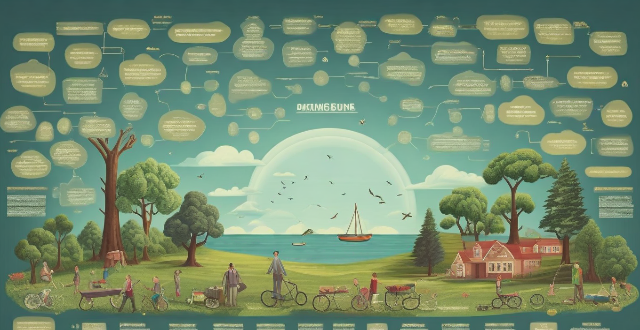
What role does environmental ethics play in sustainable development ?
The text discusses the significance of environmental ethics in sustainable development, emphasizing its role in recognizing the importance of the environment, promoting stewardship and responsibility, encouraging sustainable practices, addressing environmental justice issues, and fostering collaboration and partnerships. It highlights that by understanding the interconnectedness of all life on Earth, we can make more informed decisions about how to use and protect natural resources. The text also points out that environmental ethics promotes the idea of stewardship, which involves taking responsibility for protecting and preserving the environment for future generations. Furthermore, it encourages sustainable practices such as recycling, reducing carbon emissions, and using eco-friendly products to reduce our impact on the environment and contribute to long-term sustainability. Additionally, the text emphasizes the importance of addressing environmental justice issues to ensure fair access to natural resources and protection from environmental harm. Finally, it suggests that environmental ethics fosters collaboration and partnerships between individuals, communities, governments, and businesses to work together towards sustainable development goals.

How can individuals contribute to climate justice efforts ?
Climate justice is a crucial issue that requires collective action from individuals, communities, and governments worldwide. As an individual, you can play a significant role in promoting climate justice by adopting sustainable practices and advocating for policies that protect the environment and vulnerable populations. Here are some ways you can contribute to climate justice efforts: 1. Reduce Your Carbon Footprint - Use Public Transportation or Carpool - Bike or Walk for Short Distances - Switch to Renewable Energy Sources - Conserve Energy by Turning Off Lights and Unplugging Electronics When Not in Use - Recycle and Compost Properly Dispose of Recyclable Materials and Organic Waste - Reduce Plastic Use Bring Reusable Bags, Water Bottles, and Containers to Decrease Plastic Pollution 2. Support Sustainable Practices - Buy Local and Organic Support Local Farmers; Choose Organic Products Prioritizing Soil Health and Biodiversity - Eco-Friendly Shopping Buy Secondhand Goods; Choose Environmentally Friendly Brands Committed to Sustainability and Ethical Production Practices 3. Advocate for Climate Justice Policies - Participate in Community Actions Join Local Groups Working on Environmental Issues; Attend Meetings and Events Stay Informed About Local Climate Initiatives - Lobby for Legislation Contact Elected Officials Advocating for Stronger Climate Policies; Vote Responsibly Support Candidates Prioritizing Climate Action and Environmental Protection 4. Educate Others and Raise Awareness - Share Information Spread Knowledge Among Friends, Family, and Colleagues About Climate Change Urgency; Use Social Media to Share Educational Content and News Related to Climate Justice - Encourage Dialogue Host Discussions in Your Community About Climate Change Effects on Different Groups; Collaborate with Schools Integrating Climate Justice Lessons into Curriculums
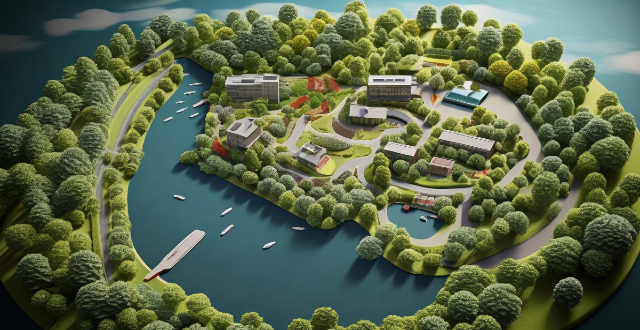
How does international environmental law address global warming ?
International environmental law plays a crucial role in addressing global warming by setting standards, encouraging cooperation, and promoting sustainable practices through treaties, agreements, and principles. The Framework Convention on Climate Change (UNFCCC), the Kyoto Protocol, and the Paris Agreement are key legal instruments that establish targets for reducing greenhouse gas emissions and provide mechanisms for compliance and financial support. Other initiatives such as Regional Seas Programmes, the Convention on Biological Diversity (CBD), and Forest Law Enforcement, Governance and Trade (FLEGT) also contribute to mitigating climate change. Challenges include enforcement, political will, and ensuring equity and justice in actions taken. As the fight against global warming continues, international environmental law must adapt to evolving scientific, political, and technological landscapes, requiring collaboration and innovation among nations.

What are the ethical implications of climate change and how can we address them ?
Climate change has significant ethical implications affecting nature, justice, and future generations. The discussion explores these dimensions and suggests strategies to address them, including respecting nature, ensuring intergenerational equity, promoting justice in climate action, and implementing policy initiatives, technological innovations, and social change to mitigate climate impacts.

How does climate change impact social justice ?
Climate change has significant impacts on social justice, affecting marginalized communities, health outcomes, economic stability, migration patterns, and gender equality. Mitigation efforts to reduce greenhouse gas emissions and adaptation strategies to build resilience against the impacts of climate change are necessary to create a more equitable future for all.

How can we achieve climate justice in a global context ?
Achieving climate justice in a global context requires addressing the root causes of climate change, promoting equitable solutions, and prioritizing those most affected by climate impacts. Key strategies include understanding climate justice, reducing emissions through renewable energy, sustainable transportation, and afforestation/reforestation; adapting to impacts with infrastructure resilience, water management, and agricultural practices; supporting vulnerable communities through international cooperation and community empowerment; implementing legislation and policy on carbon pricing and environmental regulations; advocating for awareness through education and grassroots movements; investing in research and innovation in climate science and clean technology development; and ensuring corporate responsibility with sustainable business practices and accountability.
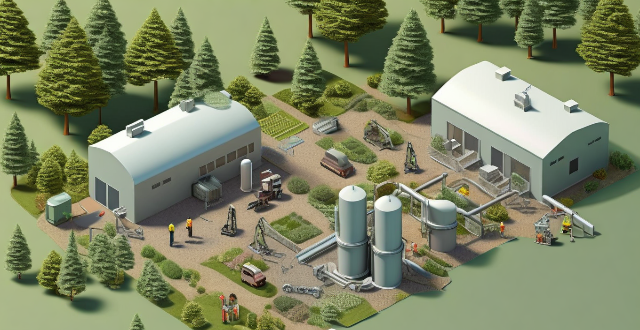
What role do developed countries play in achieving climate justice ?
The article discusses the role of developed countries in achieving climate justice. It outlines their historical responsibility, technological advantage, financial resources, and leadership in policy influence. Developed nations are responsible for a significant portion of greenhouse gas emissions due to early industrialization and higher per capita emissions. They also have the capability to drive innovation in clean energy technologies and facilitate technology transfer to less developed countries. Financial assistance through climate funds and green investments is essential for adaptation and mitigation efforts worldwide. Leadership in international agreements and stringent domestic policies set global benchmarks and encourage other nations to adopt cleaner practices. Overall, developed countries play a crucial role in bridging the gap between developed and developing nations and working towards a more equitable future for all.

How can we achieve climate justice in the face of global warming ?
This article discusses strategies to achieve climate justice amid global warming, focusing on recognizing the impact on vulnerable populations, promoting equitable access to sustainable energy, supporting environmentally sustainable economic development, and advocating for international cooperation in climate negotiations.

What are some common barriers to achieving climate justice, and how can we overcome them ?
Achieving climate justice faces barriers like lack of awareness, economic disparities, and political polarization. Strategies to overcome these include education campaigns, economic policies supporting low-income households, and fostering dialogue among stakeholders. Other challenges are fossil fuel dependency, infrastructure issues, and legal hurdles, which can be addressed by promoting renewable energy, prioritizing resilient infrastructure investments, and advocating for stronger environmental regulations.

What are the ethical considerations in climate adaptation planning ?
This article discusses ethical considerations in climate adaptation planning, including fairness and justice, environmental sustainability, transparency and accountability, intergenerational equity, and cultural sensitivity. It emphasizes the importance of equitable distribution of resources, minimizing negative environmental impacts, involving stakeholders in decision-making processes, considering the needs of future generations, and respecting cultural diversity in adaptation efforts.

What are some challenges to achieving climate justice ?
Achieving climate justice, which aims to distribute the benefits and burdens of climate change fairly, faces numerous challenges. These include a lack of political will due to industry lobbying and complacency; economic disparities between developed and developing nations as well as intergenerational equity concerns; insufficient funding for adaptation and mitigation efforts; technological and infrastructure limitations in scaling up clean technologies; social and cultural resistance to change; an information and education gap leading to misinformation and poor decision-making; legal and policy barriers such as weak legislation and difficulties in international cooperation; natural resource extraction pressures from fossil fuels and deforestation; population growth and urbanization increasing consumption patterns and creating urban heat islands; and uncertainty and risk perception issues where scientific uncertainties and risk downplaying can delay action. Addressing these challenges requires a comprehensive approach involving robust policy frameworks, increased public awareness, enhanced international collaboration, and investments in equitable and sustainable solutions.

How do climate and environmental policies address the needs of vulnerable communities and ecosystems ?
Climate and environmental policies are essential for addressing the needs of vulnerable communities and ecosystems. These policies aim to reduce emissions and pollution, protect natural resources, build resilience and adaptation capacity, and promote environmental justice. By implementing measures such as promoting renewable energy sources, establishing protected areas, providing funding for climate adaptation projects, and ensuring equitable access to clean energy technologies, these policies can significantly improve the health and quality of life for vulnerable communities while also contributing to global efforts to combat climate change.

What philanthropic activities have celebrities been involved in recently ?
The text discusses the philanthropic activities of celebrities, highlighting various ways they contribute to charitable causes and organizations. It mentions examples of celebrities donating large sums of money to charities focusing on issues such as poverty, education, healthcare, and environmental conservation. It also notes how celebrities participate in fundraising events to raise awareness and funds for specific causes, support environmental initiatives, promote social justice issues, and start their own charitable foundations.

What are the ethical responsibilities of governments in mitigating climate change ?
The text discusses the ethical responsibilities of governments in mitigating climate change, which include protecting public health and safety, promoting intergenerational equity, upholding international agreements, ensuring transparency and accountability, and promoting environmental justice. Governments must take proactive measures to reduce greenhouse gas emissions and implement adaptation strategies to minimize risks to public health. They have an obligation to ensure that current generations do not compromise the well-being of future generations by neglecting climate change. Upholding international agreements such as the Paris Agreement is an ethical responsibility of governments, as it demonstrates a commitment to collective action and cooperation in addressing a shared global challenge. Governments must be transparent and accountable in their actions related to climate change, disclosing information about greenhouse gas emissions and engaging with civil society organizations and the public on climate change issues. Environmental justice refers to the fair treatment of people regardless of race, ethnicity, income, or geographical location, with respect to environmental hazards and benefits. Governments have an ethical responsibility to address disparities in exposure to environmental harms caused by climate change.

What are the key principles of environmental ethics ?
The text introduces the concept of environmental ethics, which is a branch of philosophy focusing on the moral relationships between humans and the natural environment. It outlines key principles such as respect for nature, sustainability, precautionary principle, intergenerational equity, biodiversity conservation, ethical consumption, ecological justice, holistic thinking, stewardship, and education and awareness. These principles serve as guiding lights in promoting an ethical relationship with the environment, aiming to create a more sustainable and equitable world.
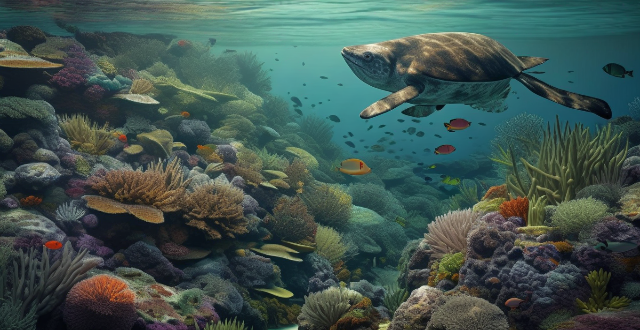
What is environmental ethics and why is it important ?
Environmental ethics, a branch of philosophy, explores the moral relationship between humans and nature. It's crucial for sustainability, biodiversity protection, addressing climate change, enhancing life quality, promoting social justice, encouraging stewardship, informing policy making, raising awareness, stimulating innovation, and fostering global cooperation. This discipline emphasizes our duty to preserve the environment for future generations by considering the long-term implications of our actions.